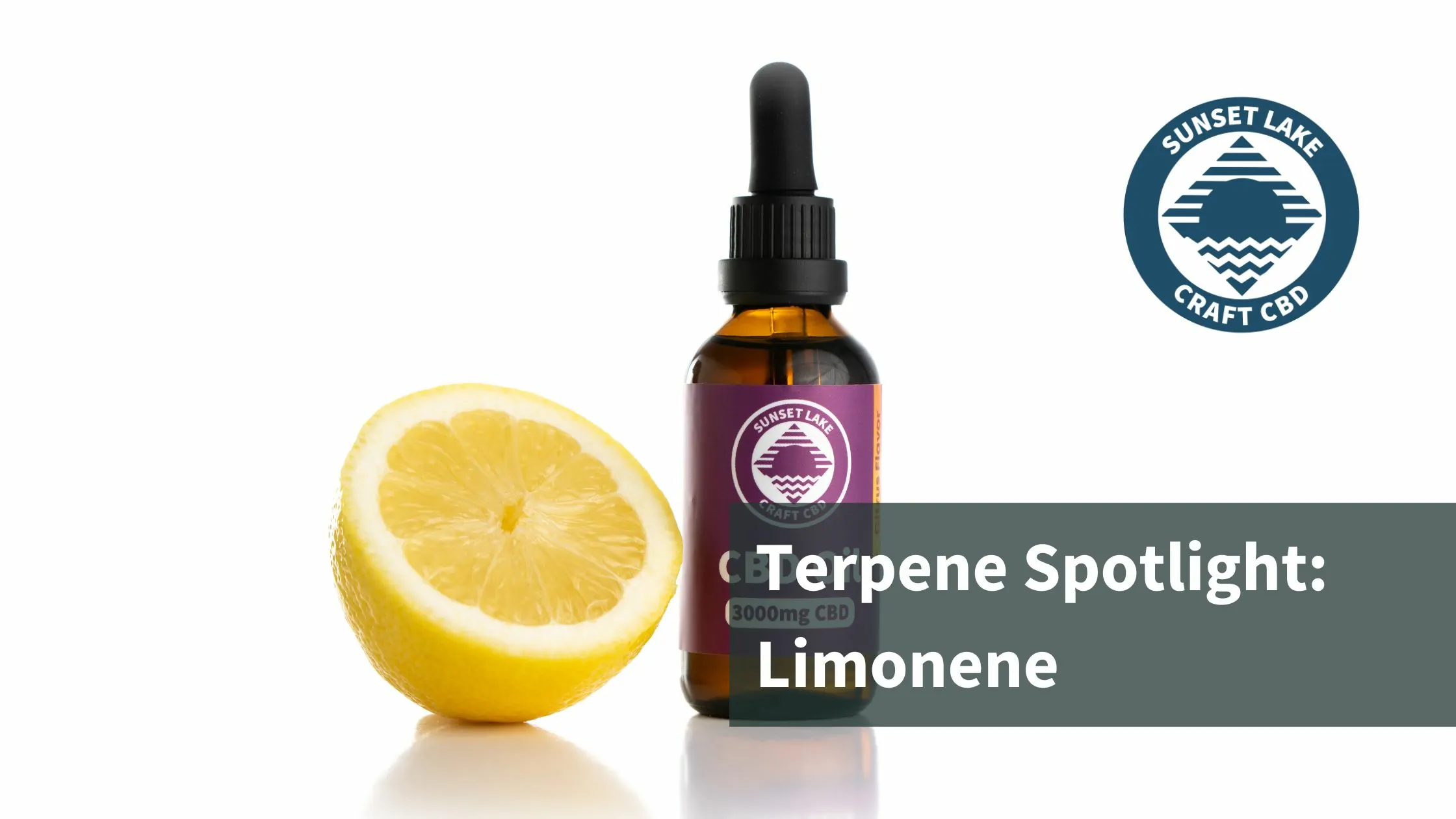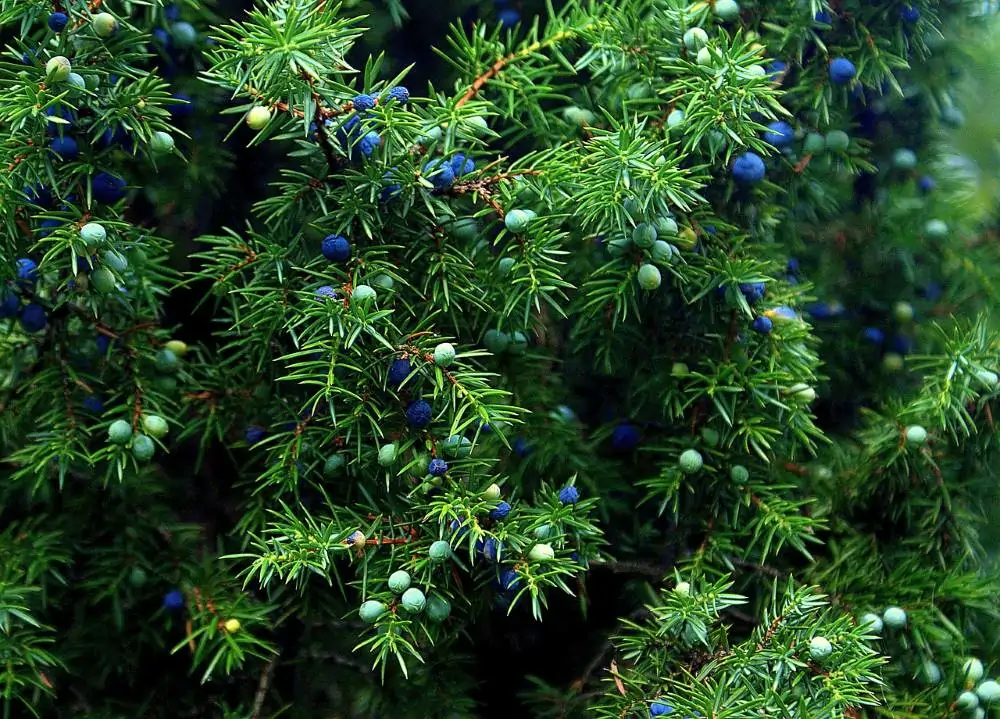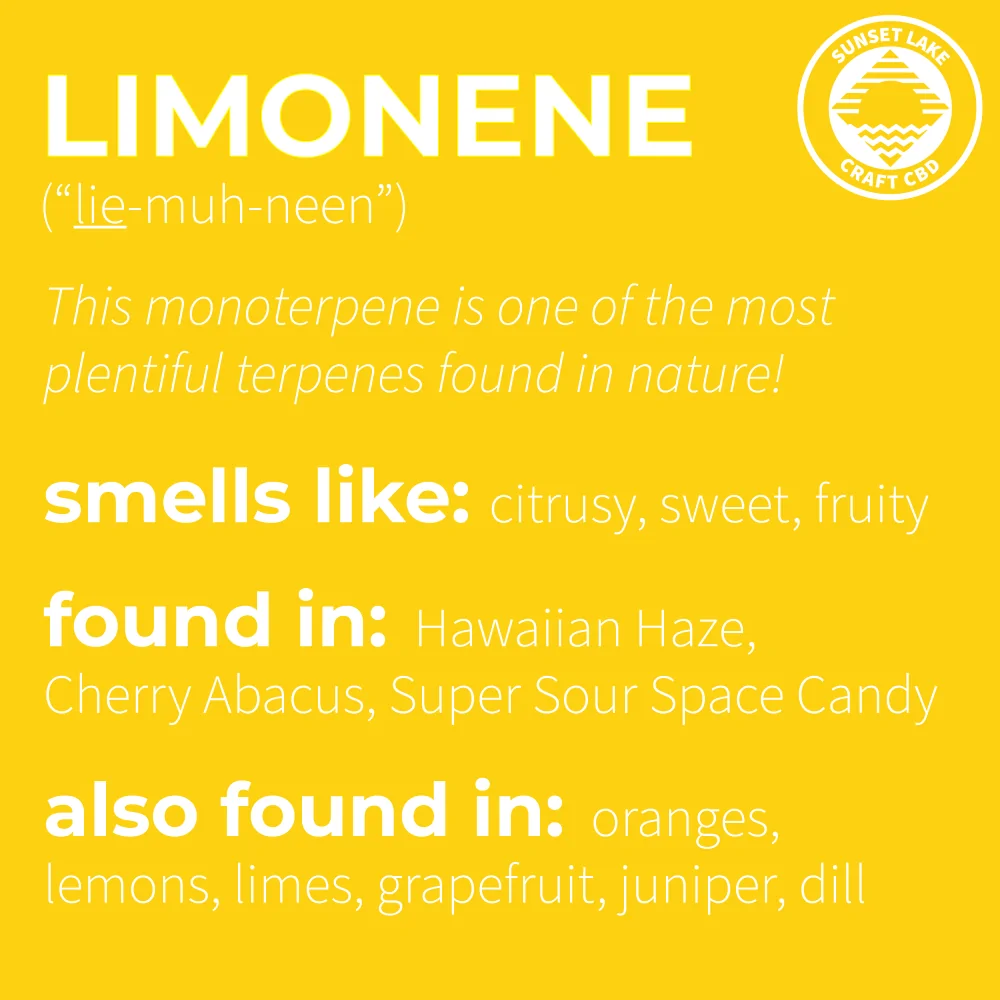No products in the cart.
Terpene Spotlight: Limonene

You may have come across the term “terpenes” while shopping for hemp CBD products and wondered, “What’s that?” Hemp plants produce hundreds of active compounds. Research into these compounds beyond just CBD and THC is ramping up. Terpenes not only play a major role in how hemp smells but they’re also believed to change how you feel when using different hemp cultivars. Limonene (“lie-muh-neen“) is a commonly found terpene in hemp and cannabis. You may already be familiar with limonene but didn’t know its name. All citrus fruits contain limonene as it’s a major component of citrus’s aromatic profile.
In this post, we’ll discuss:
- What limonene is
- Where you can find limonene in nature
- What research says about its potential benefits
What Are Terpenes?
Before diving into limonene, let’s explore terpenes as a whole. Found in many plants and some animals, terpenes are aromatic volatile hydrocarbons composed of individual isoprene molecules. Terpenes are classified by how many of these isoprene building blocks they contain. Monoterpenes (two isoprenes), sesquiterpenes (three isoprenes), and diterpenes (four isoprenes) are the most common types of terpenes. Terpenes typically account for 1-2% of hemp flower’s weight.
The aromatic profiles of many plants rely on these highly volatile terpene compounds. You may already be familiar with many terpenes but might not know their names.
Examples of terpenes include:
- Mangoes and hops contain myrcene.
- Black pepper and cinnamon owe their aroma to beta-caryophyllene.
- Turpentine lends its name to terpinolene.
- Chamomile tea contains bisabolol.
Terpenes serve several roles in plants. They can act as defense mechanisms against herbivores and pathogens, attract pollinators, and help plants adapt to environmental stressors. In hemp and cannabis, terpenes contribute significantly to the plant’s overall aroma and flavor profile, which can enhance the user experience.
Additionally, terpenes are gaining attention for their potential therapeutic benefits. Researchers are studying how terpenes interact with the human body and the endocannabinoid system, exploring their potential to modulate effects when used in combination with cannabinoids like CBD and THC. This phenomenon, known as the “entourage effect,” suggests that the combination of various plant compounds may be more beneficial than isolated compounds.
Read more: What Are Terpenes? Terpenes 101
What Is Limonene?
Limonene, sometimes referred to as D-limonene, is a monoterpene, meaning it’s composed of two isoprenes. But it’s limonene’s aroma that you’re probably familiar with: a sweet, citrusy, fruity scent reminiscent of tangerines and lemons. Limonene makes up a large percentage of the essential oils found in citrus rinds. Besides citrus, you may find limonene in hemp, caraway, juniper, dill, and some coniferous trees.
Fun fact: Limonene is one of the most plentiful terpenes found in plants!
Although it is rarely the dominant terpene, you may find limonene in many hemp cultivars.
![Bushel of Juniper Berries. Bushels of Juniper berries are high in limonene]
Limonene has a broad spectrum of applications. Its fresh, zesty scent makes it a popular choice in the food and beverage industry as a flavoring agent. It’s also widely used in the fragrance industry, where it adds a citrus note to perfumes, colognes, and personal care products. In the cleaning industry, limonene is valued for its grease-cutting properties and is a common ingredient in household cleaners and industrial solvents.

What Is Limonene Used For?
Thanks to its bright, fresh scent, limonene is used as a flavoring agent for food & drinks, a component in many fragrances, and as an additive in cleaning products. In addition to these commercial uses, scientists are researching how it affects the human body and how it might be used in a therapeutic capacity.
Here is a short list of some potential benefits that have been researched:
- Anti-anxiety: Studies have suggested that limonene may have anxiolytic properties, helping to reduce anxiety symptoms. This could make it a beneficial component in aromatherapy and stress-relief products.
- Aid with gastro-oesophageal reflux: Limonene has been studied for its potential to help with gastro-oesophageal reflux disease (GERD) by neutralizing stomach acids and promoting proper digestive function.
- Antibacterial and antibiotic properties: Research indicates that limonene has antibacterial properties, which can help in fighting off bacterial infections. Its antibiotic properties may also contribute to its use in natural health products.
- Inhibition of acne: Limonene’s antibacterial and anti-inflammatory properties may help reduce acne breakouts and improve skin health.
- Immunostimulation: Some studies suggest that limonene can boost the immune system, helping the body to fend off illnesses more effectively.
- Anti-inflammatory: Limonene has shown promise in reducing inflammation, which could be beneficial for conditions like arthritis and other inflammatory diseases.
- Analgesic qualities: Research has indicated that limonene may have pain-relieving properties, making it a potential natural alternative for pain management.
While some of the results look very promising, we must be patient and wait for more research to confirm any potential benefits that limonene could offer. The existing studies provide a foundation for further exploration, but comprehensive clinical trials are necessary to establish definitive therapeutic uses.
Sunset Lake CBD Cultivars Featuring Limonene
Our Vermont-grown hemp naturally produces high levels of many terpenes. We send samples of our hemp cultivars to a third-party laboratory to determine the terpene profile of each. Below is a breakdown of the limonene content for the 2022 crop of Sunset Lake CBD hemp flowers. These percentages may seem small, but a little bit can be quite powerful!
- Lifter – 0.08% limonene
- Sour Lifter – 0.1%
- Hawaiian Haze – 0.13%
- Suver Haze – 0.06%
- Sour Suver Haze – 0.2%
- Super Sour Space Candy – 0.12%
- Cherry Abacus – 0.13%
- Candy Kush – 0.09%
Note: The percentage of terpenes is reported on a by-weight basis.
Comparing Limonene in Sunset Lake CBD with Competitors
When comparing Sunset Lake CBD’s limonene-rich products with those of competitors, it’s essential to consider both the quality and the terpene profiles. Many CBD companies test their products for cannabinoid content but do not provide detailed terpene profiles. At Sunset Lake CBD, we prioritize transparency and provide comprehensive terpene profiles for all our hemp flowers.
Competitor products may have varying levels of limonene, often depending on the strains they cultivate and their growing practices. For instance, some brands might focus on strains with higher overall terpene content but not necessarily high in limonene. Understanding these differences can help consumers make informed choices based on their specific needs and preferences.
Additionally, the growing environment plays a crucial role in terpene development. Our Vermont farms offer an ideal climate for hemp cultivation, promoting robust terpene production. This environmental advantage, coupled with organic farming practices, ensures that our hemp flowers are rich in natural compounds, including limonene.
Why Choose Sunset Lake CBD?
- Quality Assurance: We rigorously test our hemp flowers to ensure they meet high standards for cannabinoid and terpene content. Our third-party lab testing provides transparency and guarantees product purity.
- Organic Farming: Our hemp is grown using organic farming practices, free from synthetic pesticides and fertilizers. This commitment to organic cultivation not only benefits the environment but also results in cleaner, healthier hemp products.
- Detailed Terpene Profiles: Unlike many competitors, we provide detailed terpene profiles for our hemp flowers. This information helps consumers understand the specific benefits of each strain and make informed choices.
- High Limonene Content: Our hemp cultivars, such as Sour Suver Haze and Hawaiian Haze, are carefully selected for their high limonene content. These strains offer the distinctive citrus aroma and potential therapeutic benefits associated with limonene.
FAQs
- What are terpenes?
Terpenes are aromatic volatile hydrocarbons found in many plants and some animals. They play a significant role in the aroma and potential effects of hemp and other plants.
- Where can limonene be found naturally?
Limonene is found in citrus fruits, hemp, caraway, juniper, dill, and some coniferous trees.
- What does limonene smell like?
Limonene has a sweet, citrusy, fruity scent reminiscent of tangerines and lemons.
- What are the potential benefits of limonene?
Research suggests that limonene may have anti-anxiety, antibacterial, antibiotic, anti-inflammatory, and analgesic properties, among other potential benefits.
- Which Sunset Lake CBD cultivars contain limonene?
Some Sunset Lake CBD cultivars that contain limonene include Lifter, Sour Lifter, Hawaiian Haze, Suver Haze, Sour Suver Haze, Super Sour Space Candy, Cherry Abacus, and Candy Kush.

